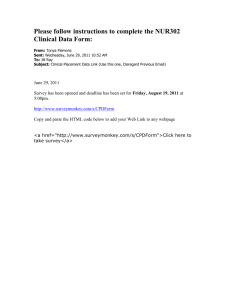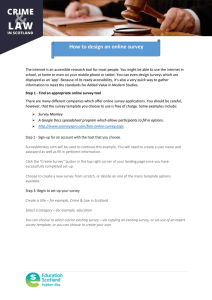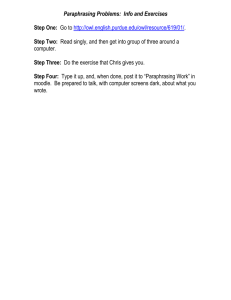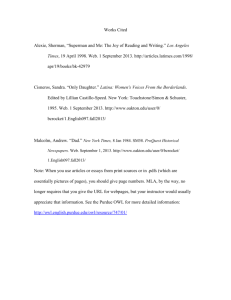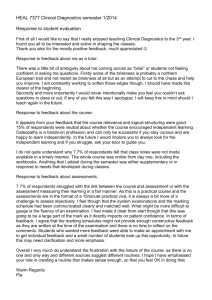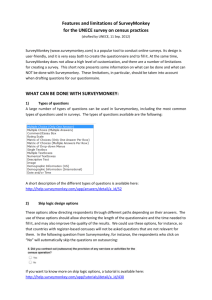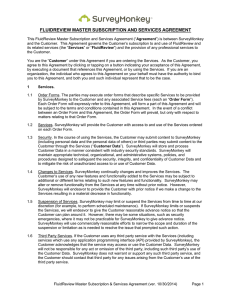Writing Survey Questions: Tips for effective and relevant questions
advertisement
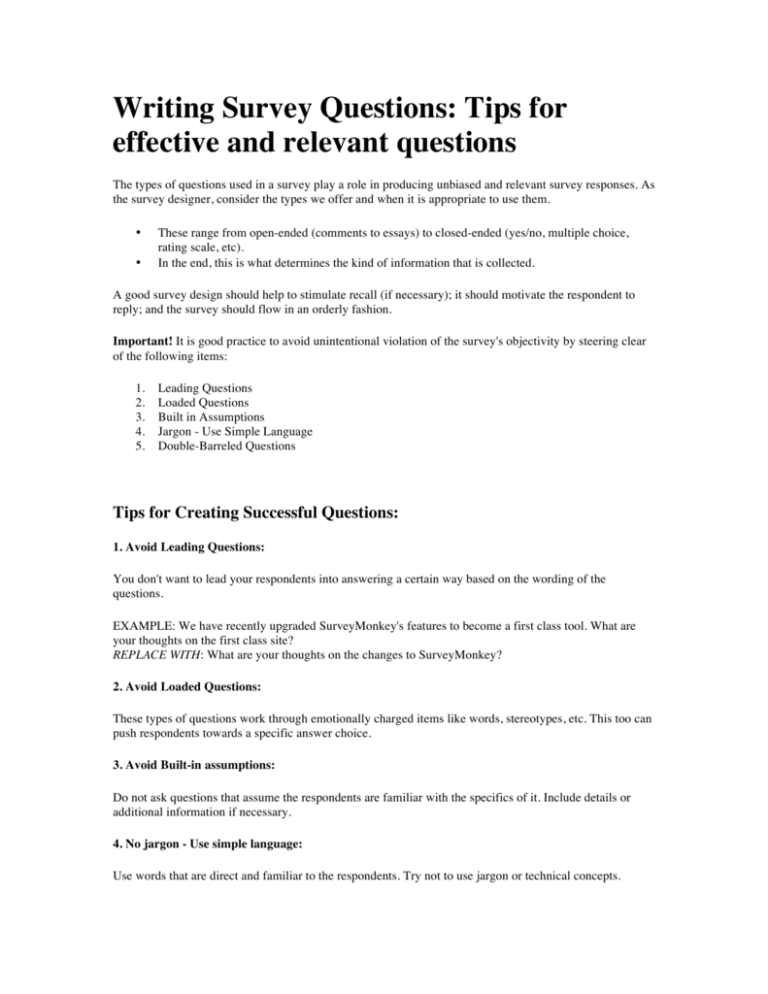
Writing Survey Questions: Tips for effective and relevant questions The types of questions used in a survey play a role in producing unbiased and relevant survey responses. As the survey designer, consider the types we offer and when it is appropriate to use them. • • These range from open-ended (comments to essays) to closed-ended (yes/no, multiple choice, rating scale, etc). In the end, this is what determines the kind of information that is collected. A good survey design should help to stimulate recall (if necessary); it should motivate the respondent to reply; and the survey should flow in an orderly fashion. Important! It is good practice to avoid unintentional violation of the survey's objectivity by steering clear of the following items: 1. 2. 3. 4. 5. Leading Questions Loaded Questions Built in Assumptions Jargon - Use Simple Language Double-Barreled Questions Tips for Creating Successful Questions: 1. Avoid Leading Questions: You don't want to lead your respondents into answering a certain way based on the wording of the questions. EXAMPLE: We have recently upgraded SurveyMonkey's features to become a first class tool. What are your thoughts on the first class site? REPLACE WITH: What are your thoughts on the changes to SurveyMonkey? 2. Avoid Loaded Questions: These types of questions work through emotionally charged items like words, stereotypes, etc. This too can push respondents towards a specific answer choice. 3. Avoid Built-in assumptions: Do not ask questions that assume the respondents are familiar with the specifics of it. Include details or additional information if necessary. 4. No jargon - Use simple language: Use words that are direct and familiar to the respondents. Try not to use jargon or technical concepts. 5. Double Negatives or Double-Barreled Questions: Double-Barreled questions split them into more than one part, idea, or meaning. The answer choice for each part might have separate meanings to the ideas presented within the one question. EXAMPLE: How useful do you find SurveyMonkey's Help Center Topics and the email support center? REPLACE WITH: • • Q1: How useful do you find SurveyMonkey's Help Center Topics? Q2: How useful do you find SurveyMonkey's email support? Additional Resources: 1. Driscoll, Dana Lynn (2006). "Creating Good Interview and Survey Questions." Retrieved September 14, 2007, from The Owl at Purdue: http://owl.english.purdue.edu/owl/resource/559/06/ 2. Iraossi, G. (2006). The Power of Survey Design: A User's Guide for Managing Surveys, Interpreting Results, and Influencing Respondents. Washington, D.C.: The World Bank
